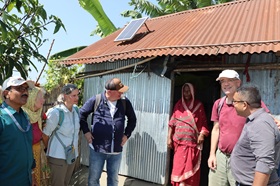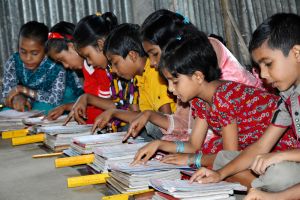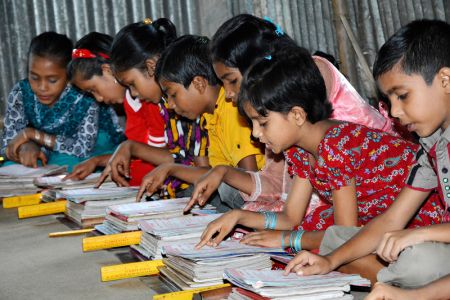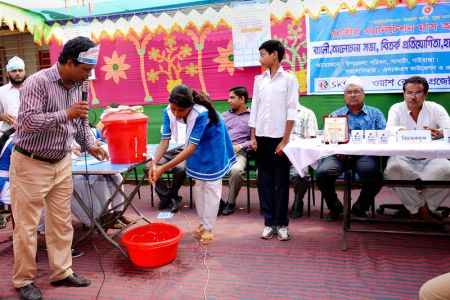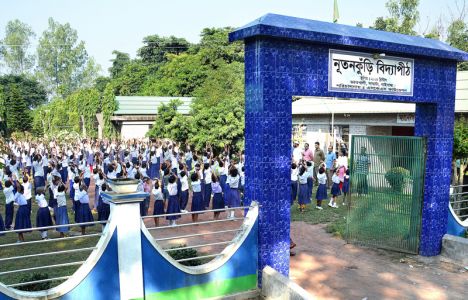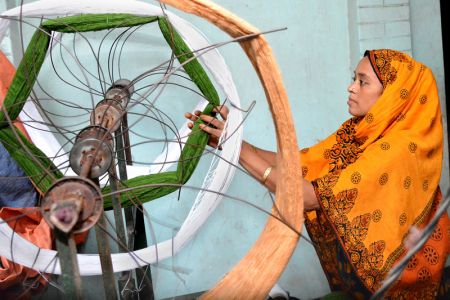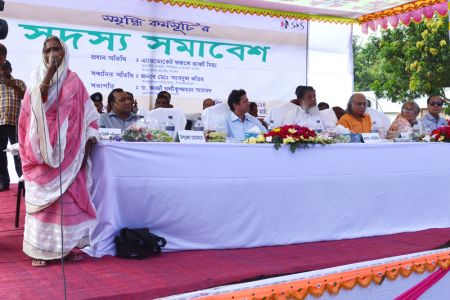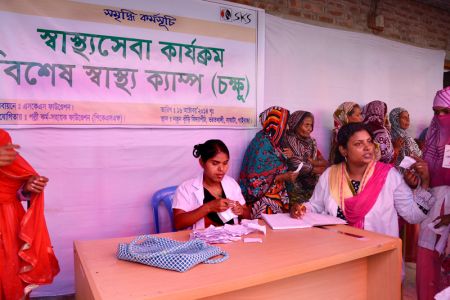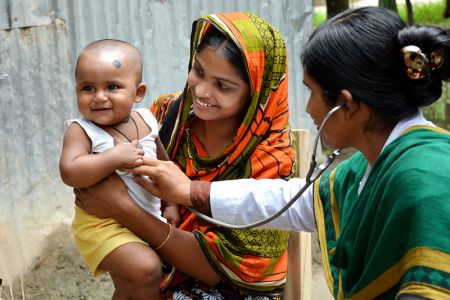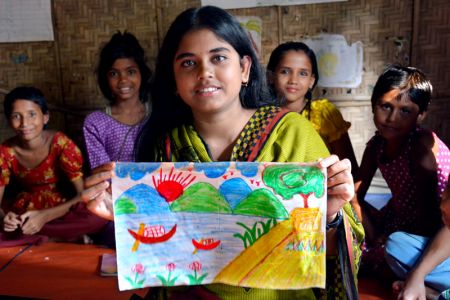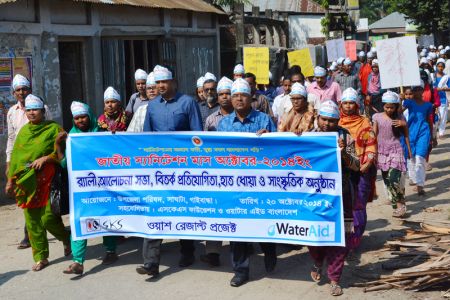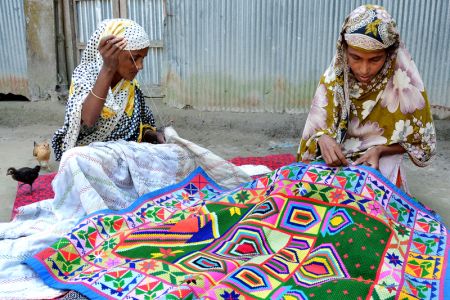Strategic Issues, Objectives & Directions at a Glance
|
Strategic Issues |
Strategic Objectives |
Strategic Directions |
|
Programmatic Issues |
|
|
|
Social Empowerment |
|
|
|
1. Women Development & Gender Justice
|
|
1. Increase awareness of women's rights & entitlements. 2. Advocacy for accessing gender-equity-based services |
|
2. Child Protection |
|
1. Awareness at community and educational institutions 2. Sensitizing the LGIs and law enforcement agencies |
|
3. Addressing Inclusivity
|
|
1. Ensure access to basic services & facilities by all sects of people 2. Connecting people with service providers |
|
4. Peace & Harmony in Family & Community
|
|
1. Community sensitization on social bonding 2. Awareness against drugs and domestic violence |
|
5. Governance & Accountability
|
|
1.Community & stakeholder awareness on demanding their rights & entitlements. |
|
Economic Development |
|
|
|
1. Expansion of Microfinance Program |
|
1. Horizontal and vertical growth 2. Introduce innovative products and digitization 3. Increase financial capacity by building equity and securing low-cost lending |
|
2. Technical & Vocational Education |
|
1. Youth skill development for employment generation 2. Partnership and Linkage building with MFIs and Govt. Institutions |
|
3. Entrepreneurship Development |
To support the youth grow as entrepreneurs to play a crucial role in meeting industrial & economic needs and alleviating poverty. |
1. Financing & Promoting Small & Medium Enterprises (SME) 2. Market Development & Value Chain Creation |
|
Environmental Justice |
|
|
|
1. Environment Conservation |
|
1. Awareness on Environmental Conservation 2. Promoting Environmental Protection |
|
2. Addressing Climate Change
|
|
1. Focusing on Resilience and Adaptation 2. System Strengthening and Collaboration with government, academia and other stakeholders |
|
3. Disaster Risk Reduction
|
|
1. Promoting Anticipatory Action 2. Strengthening disaster management system |
|
Basic Service Support |
|
|
|
1. Quality Education
|
|
1. Early Childcare and Development (ECCD) 2. Promoting Formal and Non-Formal Education
|
|
2. Promotion of Health |
|
1. Promotion of Mother and Child Health 2. Awareness raising and increasing health-seeking behavior |
|
3. Promotion of WASH |
|
1. Promoting improved WASH 2. Awareness raising on hygiene and best practices |
|
4. Senior Citizen Care |
|
1. Extending Physical and mental health support 2. Safe home and access to social safety net program |
|
Organizational Issues |
|
|
|
1. People
|
- To develop employees as the most important asset of the organization to excel the best. |
1. Ensure required facilities 2. Professional staffing 3. Staff capacity development 4. Develop and ensure the exercise of organizational culture |
|
2. Environment-Friendly Organization
|
-To make the organization environment-friendly, where the prevailing beliefs, values, and behaviors prioritize environmental responsibility, sustainability, and conscientious use of resources. |
1. Eco-friendly program Promotion 2. Introducing multi-channel communication 3. Technological adaptation 4. Cost efficiency |
|
3. Organizational Systems Improvement |
- To enhance the efficiency of SKS’s work to meet the rising standards in the industry |
1. Living Standard Operating Procedure (SoP) 2. Adaptive and participatory management 3. Digitization and automation 4. Research and Development 5. Improve the Internal control system |
|
4. Governance |
- To improve the governance systems so that everything is compliant in a transparent manner. |
1. Making the executive council well informed 2. Putting the necessary reports in public 3. Developing secondary leadership |
|
5. Finance |
- To make the organization equipped to mobilize diverse funding and utilize funds efficiently. |
1. Explore diverse funding 2. Maximize resource generation from in-house sources 3. Ensure efficient use of funds |
SKS Foundation works with the poor communities in order to improve socio-economic status, promote gender equality and bring positive changes in the society through close collaboration with government line departments, local government and administration, civil societies, NGOs, private sectors, development partners and other stakeholders.
মানবাধিকার ও সামাজিক ন্যায়বিচার উন্নীত করা যেখানে দারিদ্র্য মুক্ত সমাজ, স্থানীয় ক্ষমতা নির্মিত, অপনীত লিঙ্গ বৈষম্য ও জলবায়ু পরিবর্তন দুর্বলতা কমে যায়.
A poverty free society where human rights and social justice be promoted,local capacity built, eliminated gender discrimination and reduced climate change vulnerability.
The Undaunted Development Journey
Started in the Northern Bangladesh
The Regional Context
Over the past decades, the northern region, which is the home of SKS Foundation, has experienced certain degree of social, economic and political transformation with regard to development. Despite some visible improvement in school enrolment; women participation in income generation; local government system; agricultural activities and farm produce; vegetation coverage; communication network and so on, the region still remains poor, vulnerable and relatively backward. Absolute number of people living below the poverty line continues to be higher compared to national average. The region, particularly in terms of poverty reduction, did not progress as much as expected due to multiple factors.
The overall context of the region represents a mixed trend. Agricultural growth with crop diversification in the region continues; while farmers continue to suffer income losses due to market erosion and trade manipulations. Women leadership in political arena including local government increased over the years with lack of leadership skills and competence. The lean season crises in the north has reduced but not eliminated. Magnitude of the employment crisis in the region continues to draw attention of all concerned without being virtually addressed with sustainable long-term solution.
|
Emergence of SKS Foundation The birth of the Organization is traced back in the activities of a local CBO at Bharatkhali of Gaibandha district. Geographically, one of the distinctive features of the district is that out of its total 2179 square km the mighty rivers Teesta, Brahmaputra and Jamuna engulf the large north to south in the eastern part. The mighty rivers are the natural beauty of the areas, and on the other hand those are the reason turning Gaibandha as one of the most disaster-prone districts of Bangladesh. Flood is a common phenomenon during the monsoon. Reversibly there is prevalence of drought in the dry season. River erosion appears as the severe threat to the life of the people as it turns the victims most vulnerable with the loss of their home, land and livelihood. There is widespread unemployment scenario due to absence of mills and factories at Gaibandha. Only option for a large number of people is selling of manual labor mainly in agricultural sector. However, the labors get jobless at seasonal intervals and without earning their daily life face starvation or eating far below the nutritional requirement. This pushes a large number of labors migrate to other potential urban & rural areas. Again, this creates tremendous problems in their families turning the women and children more helpless. This condition often creates social problems i.e. early marriage, dowry, polygamy, divorce, physical torture leaving the life of women & children miserable. Centering this situation, a group of youth got involved in various socio-cultural and people’s welfare program back in 1987 and gradually their effort got shaped into development program. SKS started driving its development effort targeting the poor & small entrepreneurs to save them from the traditional money-makers. In 1991, getting registered with the Department of Social Welfare made the Organization confident in running its undaunted journey to help people in their cherished development. |
Since Bangladesh remains vulnerable to natural disasters and climate change impact, the northern region is on the top of the list in terms of flood and other climate induced risks. Dispite some improvement in the drought situation in the recent years, the region is increasingly experiencing climate change impact in several front. Annual rainfall is getting erratic with wide annual variation in moonsoon precipitation. Global environmental effect, especially changes in the Himalayan region has influenced the erratic change in weather pattern in northern Bangladesh.
Natural disaster, especially flood in the upstream, is a huge deterrent affecting the rural livelihood almost every year in the region and consequently holding the region’s economy, which is largely based on agriculture, back from rolling up. Consequence of flood can’t be avoided due to geographical location, which constitutes the getway of the main rivers emanating in the Himalayan region further up in the north. River erosion in the region is recurring. The region experienced some greening over the last few decades with massive tree plantation which has become increasingly popular.
Gender discrimination in general has reduced, but violence against women still continues. The region is blessed with good communal peace and harmony, better than other regions in the country. Char dwellers still suffer exclusion and deprived of essential government services; while wage exploitation continues for the landless and ethnic minority in the region. The exploitation is more acute for women.

